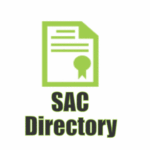
How to Become a Disorder Professional (SUDP)
Introduction
If you’re committed to helping individuals overcome the struggles of addiction, becoming a Substance Use Disorder Professional (SUDP) can be a life-changing career choice. SUDPs provide essential services to individuals battling substance use disorders by offering treatment, guidance, and support throughout their recovery journey. This profession is not only emotionally rewarding but also increasingly in demand as addiction issues continue to affect millions worldwide.
This comprehensive guide covers everything you need to know about becoming a SUDP, from education and supervised clinical hours to exams and licensure. We’ll explore the Washington State Department of Health’s requirements and certification process. Plus, we’ll answer some common questions and give you tips to help you thrive in your career as a certified addiction professional. By the end, you’ll deeply understand what it takes to become a licensed SUDP and how to navigate the certification process smoothly.
For more details on becoming a certified substance abuse counselor in different states, explore Substance Abuse Counselor Certification by State.
What is a Substance Use Disorder Professional (SUDP)?
An SUDP is a certified professional responsible for providing treatment and counseling services to individuals dealing with addiction. SUDPs help clients navigate recovery, build healthier coping strategies, and avoid relapse. They often work alongside other healthcare providers to ensure a holistic approach to treatment.
SUDPs play a crucial role in:
- Client Assessment: Evaluating the severity of addiction and determining the best course of treatment.
- Treatment Planning: Crafting personalized plans to help clients achieve recovery goals.
- Counseling: Offering one-on-one or group therapy to address underlying emotional, behavioral, or mental health challenges.
- Support Services: Connecting clients with community resources like sober living homes, employment assistance, and ongoing support groups.
Professionals interested in becoming an SUDP must complete specific educational and experiential requirements, followed by a state-mandated examination.
To learn more about the general process of becoming a substance abuse counselor across states, you can visit How to Become a Certified Substance Abuse Counselor for a broader overview.
Why Pursue SUDP Certification?
Career Growth and High Demand
According to the Bureau of Labor Statistics (BLS), job prospects for addiction and substance abuse counselors are expected to grow by 25% between 2020 and 2030, significantly faster than the average for all occupations. This growth reflects the increasing need for professionals who can address the rising opioid crisis and other substance use challenges.
Obtaining your SUDP certification will open doors to various career paths within hospitals, residential treatment centers, rehabilitation clinics, and community health organizations. SUDPs can also work in private practice or serve in governmental agencies focused on mental health and addiction services.
Additionally, certified SUDPs in Washington typically earn between $42,000 and $60,000 per year, depending on experience, specialization, and location.
Professional Credibility and Recognition (H3)
Becoming an SUDP offers you a level of credibility that sets you apart from non-certified professionals. Certifications from recognized bodies like the International Certification & Reciprocity Consortium (IC&RC) or NAADAC ensure that you possess the expertise, ethics, and clinical competencies required to support individuals facing substance use disorders.
With an SUDP credential, you demonstrate to employers and clients that you meet rigorous professional standards. This credential validates your ability to provide quality care and gives you access to higher-paying roles and leadership positions.
How to Become a Substance Use Disorder Professional (SUDP)
Educational Requirements
To qualify for SUDP certification in Washington State, you must have at least a high school diploma or GED. However, most employers prefer candidates with associate’s or bachelor’s degrees in relevant fields such as psychology, counseling, or social work.
Advanced certifications or specializations often require higher degrees. For example, to become an SUDP Trainee or SUDP Supervisor, pursuing additional academic qualifications can be a significant advantage.
For more information on degree programs that align with SUDP certification, visit Substance Abuse Counselor Certification by State for specific requirements in each state.
Supervised Clinical Experience
Washington State requires aspiring SUDPs to complete 2,500 hours of supervised clinical experience. This hands-on training is essential in developing real-world skills and applying theoretical knowledge in clinical settings. You’ll be working under the supervision of a licensed professional who will guide you through client assessments, counseling sessions, and treatment planning.
During this period, you’ll develop crucial skills, such as:
- Effective communication and active listening
- Managing group and individual therapy sessions
- Creating relapse prevention plans
- Understanding ethics and confidentiality laws in substance abuse counseling
Check out the Washington State Department of Health SUDP Supervision Guidelines for information on where to complete supervised hours.
Certification Exam
After completing your education and clinical experience, you must pass the IC&RC Alcohol and Drug Counselor Exam. This exam evaluates your understanding of critical areas such as:
- Client evaluation and treatment planning
- Counseling ethics and professionalism
- Substance use and co-occurring mental health disorders
- Crisis management and relapse prevention
You can access study materials, practice exams, and additional resources from the IC&RC’s exam preparation portal to prepare.
Application Process
Applying for your SUDP certification involves several steps. Here’s a breakdown:
- Submit academic transcripts verifying your education.
- Provide documentation for your supervised clinical hours.
- Pass the IC&RC or NAADAC exam.
- Complete a criminal background check.
- Pay the required fees, which range from $200 to $400, depending on the certification level.
Once all materials are submitted, the Washington State Department of Health will review your application. After approval, you’ll be granted the official SUDP license.
Maintaining Your SUDP Certification
Continuing Education Requirements
To maintain your certification, Washington State requires SUDPs to renew their license every two years. You must complete 40 Continuing Education Units (CEUs) during this renewal period. These CEUs ensure you stay updated on the latest research, trends, and best practices in addiction counseling.
Courses can be completed through:
- Accredited online platforms
- In-person seminars or workshops
- Conferences hosted by NAADAC or IC&RC
For more details, visit the Washington State Department of Health CEU portal.
Renewal Process
The renewal process involves the following steps:
- Submit proof of completed CEUs.
- Pay a renewal fee (typically $200).
- Pass a criminal background check, if required.
Keeping up with your continuing education and timely renewal ensures that you remain in good standing as a certified professional, allowing you to continue your vital work in addiction recovery.
Challenges and Rewards of Being a Certified SUDP
Challenges of the Role
Working as an SUDP is not without its challenges. You may encounter:
- High caseloads, leading to potential burnout.
- Emotional exhaustion from dealing with clients struggling with relapse.
- There is a need to stay continuously updated with new treatment methodologies.
However, many SUDPs find support through peer networks, supervision, and continuing education opportunities to prevent burnout and sustain long-term career fulfillment.
Rewards of the Role
Despite the challenges, being an SUDP is incredibly rewarding. You’ll witness firsthand the transformation of individuals from addiction to recovery and help them regain control over their lives. Every small victory, whether it’s a client completing a month of sobriety or reconnecting with their family, brings profound satisfaction.
Job Opportunities for Certified SUDPs
As an SUDP, your job opportunities are broad and diverse. In Washington State alone, numerous employers are seeking qualified addiction counselors. Here are a few examples:
- XYZ Rehabilitation Center, Seattle, WA: Substance Abuse Counselor, $45,000 – $55,000/year
- Alaska Recovery Solutions, Anchorage, AK: SUDP, $42,000 – $60,000/year
- Evergreen Health Services, Spokane, WA: Behavioral Health Counselor, $50,000 – $65,000/year
To browse more job opportunities across various states, visit the Job Board for Certified Counselors.
Frequently Asked Questions (FAQs) About SUDP Certification
How long does it take to become certified as an SUDP?
The entire process—education, clinical hours, and exam—typically takes 1 to 3 years, depending on your starting point and the level of certification pursued.
Is certification transferable between states?
Some states have reciprocity agreements, meaning your certification may transfer with minimal additional requirements. Always check with the specific state’s certification board for details.
What are the costs associated with becoming certified?
Costs typically range between $500 to $1,500, covering education, exam fees, and application costs.
Conclusion
Becoming a Substance Use Disorder Professional (SUDP) is an incredibly impactful and rewarding career path. Whether you’re starting your journey or looking to advance in the field, certification is your ticket to making a difference in the lives of those battling addiction. With the proper education, clinical experience, and licensure, you’ll be well-equipped to provide compassionate, expert care to those in need. For more detailed certification requirements in different states, explore our Substance Abuse Counselor Certification by State.
About the author : Ted Pinkard
Beyond his professional life, Ted is passionate about community service and actively participates in various local initiatives. He is an avid learner, always seeking to expand his knowledge through books, seminars, and hands-on experiences.
Get Social
Tags






